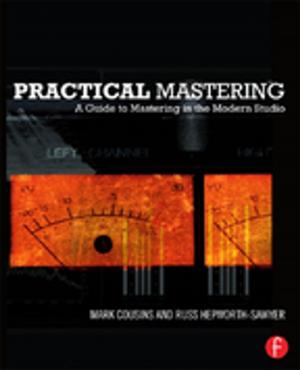Research Methods for Forensic Psychologists
A guide to completing your research project
Nonfiction, Health & Well Being, Psychology, Forensic Psychology, Social & Cultural Studies, Social Science, Crimes & Criminals, Criminology| Author: | Sarah Brown, Emma Sleath | ISBN: | 9781317909019 |
| Publisher: | Taylor and Francis | Publication: | June 26, 2015 |
| Imprint: | Routledge | Language: | English |
| Author: | Sarah Brown, Emma Sleath |
| ISBN: | 9781317909019 |
| Publisher: | Taylor and Francis |
| Publication: | June 26, 2015 |
| Imprint: | Routledge |
| Language: | English |
Research Methods for Forensic Psychologists is an accessible and comprehensive textbook that introduces students to the research process in forensic psychology. Adopting a problem-based learning approach, this book offers a ‘how-to’ guide to the whole research process and empowers readers to develop their own programme of research, from initial vague ideas, to developing a research question, to carrying out a methodologically rigorous research project, to disseminating the findings.
The text is centred on five case studies, sufficiently different in nature to address the most common research methodologies. Each case study is linked with a specific research question that will be used to illustrate the research process throughout the rest of the book. Topics covered in the book include:
- Design and Planning, including a literature search, a discussion of different sorts of data, practical and feasibility issues, research ethics and developing a research proposal.
- Conducting research, including the submission of ethics proposals and responding to feedback, collecting data and dealing with the problems and challenges of analysing data.
- Dissemination of findings, an overview of the different types of papers, with examples listed and other methods of disseminating findings discussed, such as conference presentations and the use of social media.
Throughout, issues of common difficulty or confusion are highlighted and activities are provided for readers to consider and apply the information discussed further. Additional reading sections and summaries are also provided at the end of each chapter. This book is essential reading for advanced students in Forensic Psychology, as well as trainees and practitioners within relevant forensic psychology organisations.
Research Methods for Forensic Psychologists is an accessible and comprehensive textbook that introduces students to the research process in forensic psychology. Adopting a problem-based learning approach, this book offers a ‘how-to’ guide to the whole research process and empowers readers to develop their own programme of research, from initial vague ideas, to developing a research question, to carrying out a methodologically rigorous research project, to disseminating the findings.
The text is centred on five case studies, sufficiently different in nature to address the most common research methodologies. Each case study is linked with a specific research question that will be used to illustrate the research process throughout the rest of the book. Topics covered in the book include:
- Design and Planning, including a literature search, a discussion of different sorts of data, practical and feasibility issues, research ethics and developing a research proposal.
- Conducting research, including the submission of ethics proposals and responding to feedback, collecting data and dealing with the problems and challenges of analysing data.
- Dissemination of findings, an overview of the different types of papers, with examples listed and other methods of disseminating findings discussed, such as conference presentations and the use of social media.
Throughout, issues of common difficulty or confusion are highlighted and activities are provided for readers to consider and apply the information discussed further. Additional reading sections and summaries are also provided at the end of each chapter. This book is essential reading for advanced students in Forensic Psychology, as well as trainees and practitioners within relevant forensic psychology organisations.















